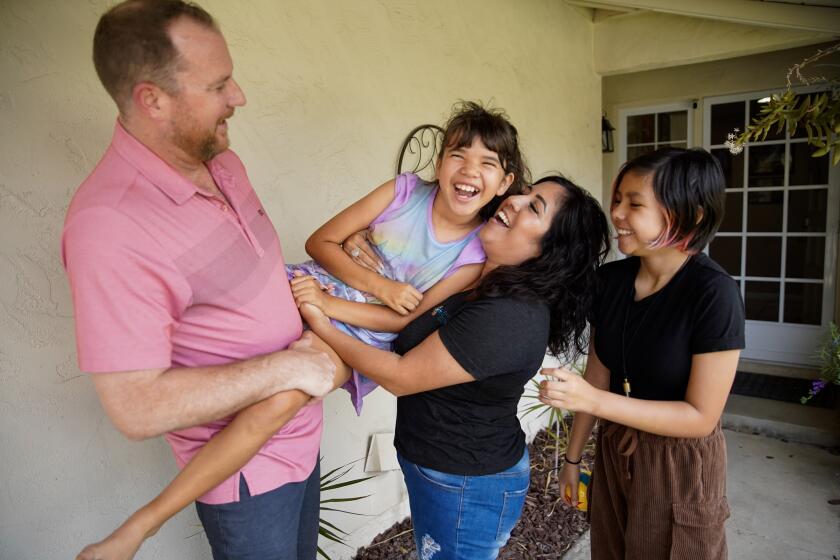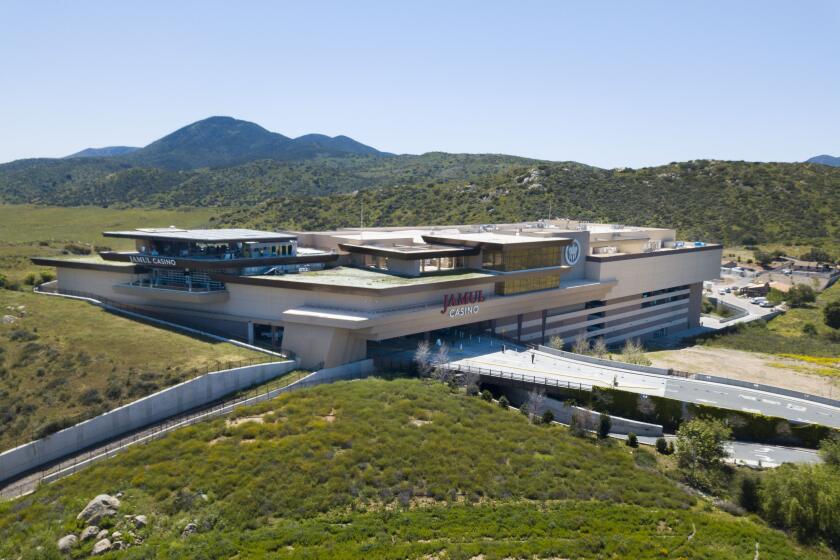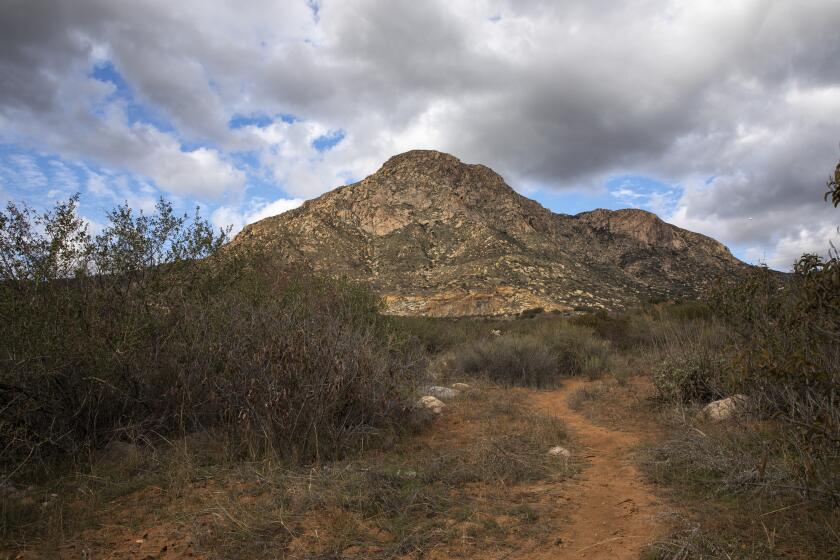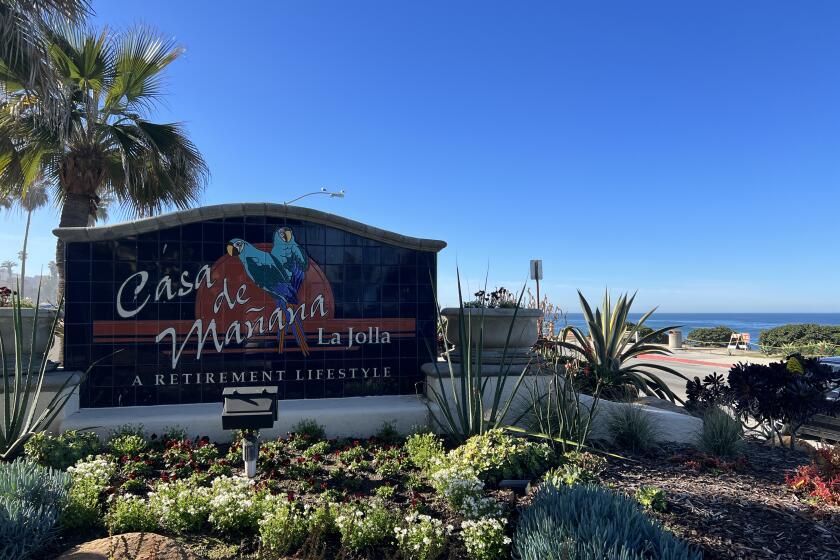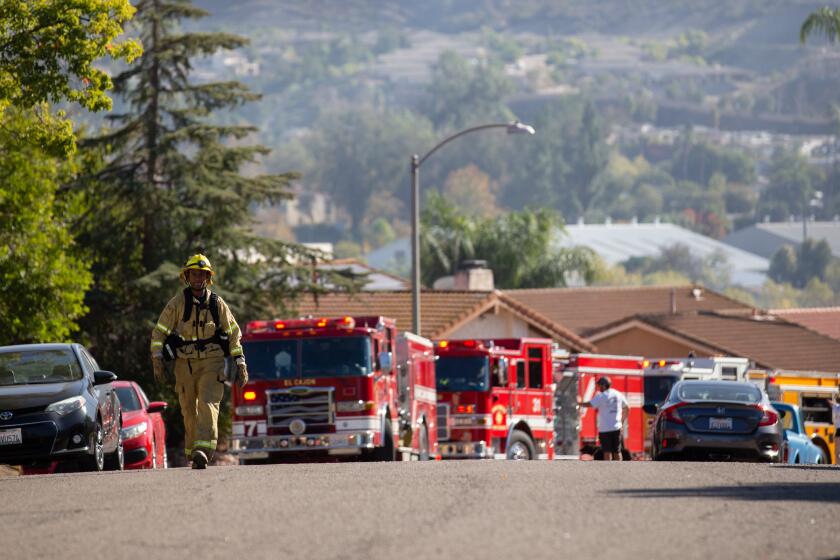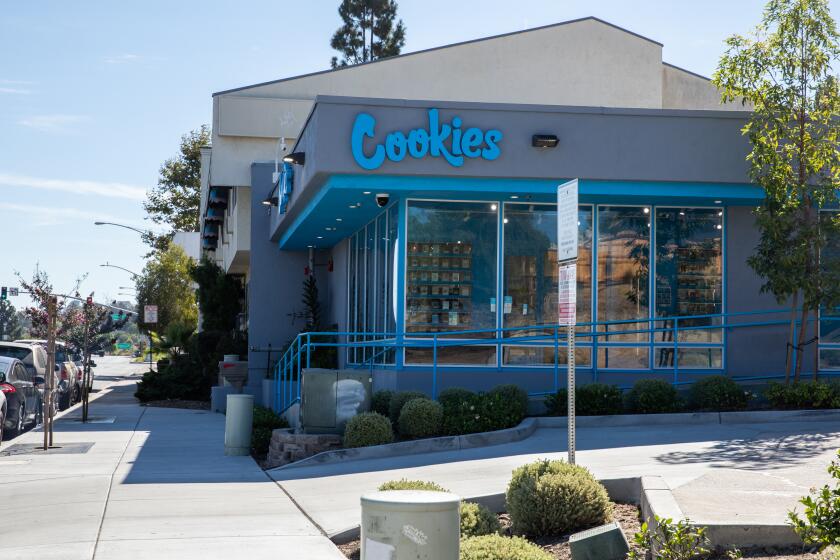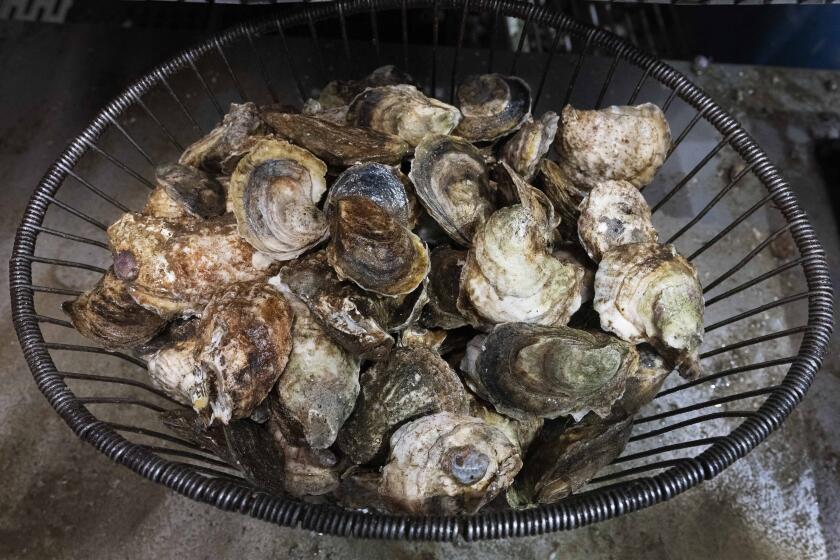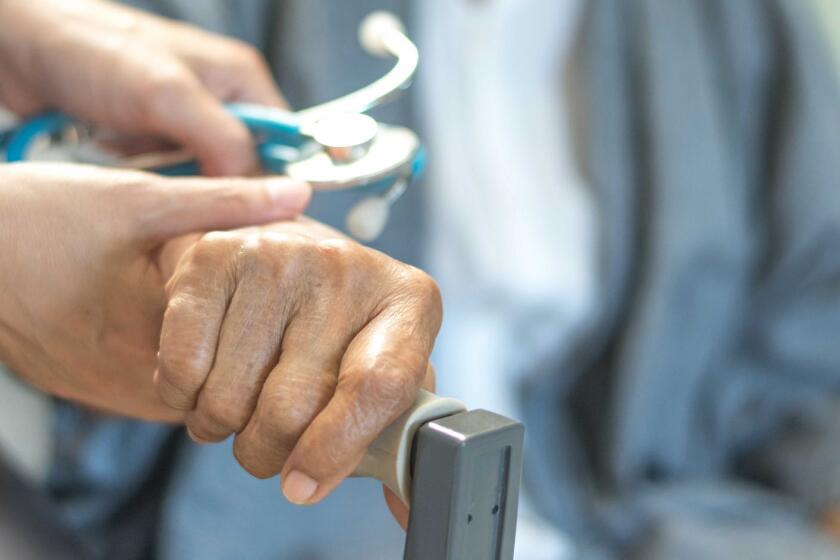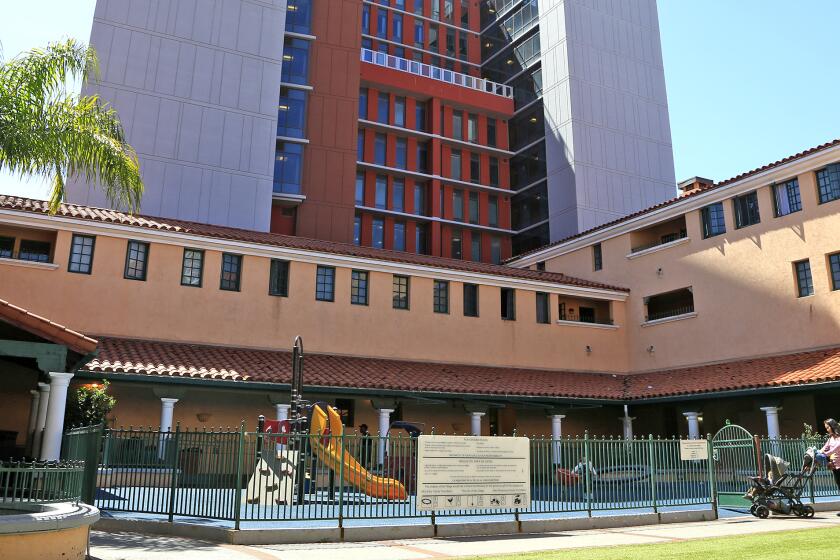Memory care admins await news of when vulnerable residents, staff can receive vaccine
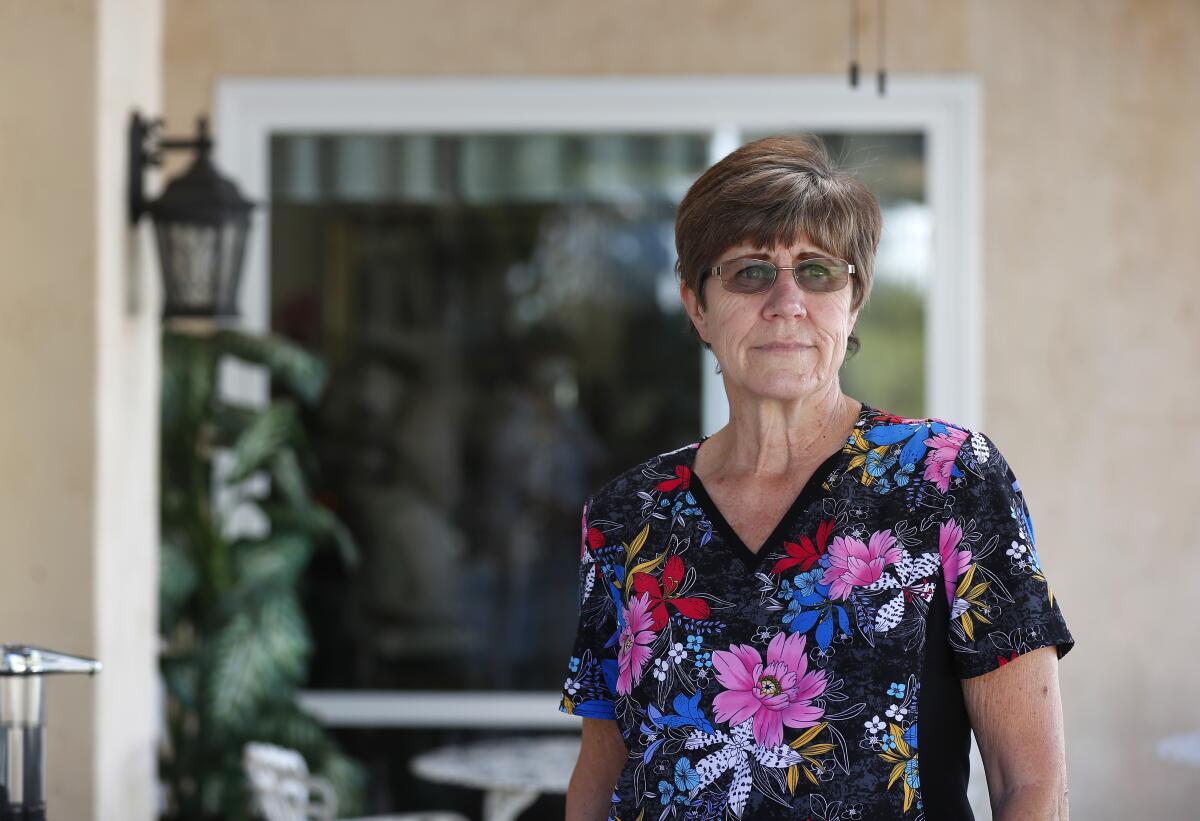
The coronavirus pandemic is unlike any infection-control situation that Alpine View Lodge owner and Administrator Linda Cioffi has experienced in the 42 years since she and her parents opened the East County memory care facility.
Due to an outbreak last month that sickened 30 out of 34 residents and 17 out of 28 staff, during which eight residents died from the virus, Cioffi has worked 41 days straight as of Friday without an end to her streak in sight.
Without negative pressure rooms in which to isolate residents, like those available in limited supply at hospitals, keeping residents safe has been especially challenging even though the majority of residents in her 38-bed capacity facility have complied with requests to remain in their rooms. Quickly accessing the vaccine will ensure the remainder of her staff and residents continue to be COVID-free.
“We feel like we’ve made it through the tunnel and we can see a light at the end of the tunnel and it’s not an oncoming train,” Cioffi said. “But for my 11 remaining staff ... and for my four residents here who have remained negative the entire time, I would love to get that damn vaccine because they don’t have any antibodies swimming around in their system.”
But when will dementia patients receive the COVID-19 vaccine? That’s been the question on the minds of Cioffi, Stellar Care Executive Director Linda Cho and other long-term care facility administrators specializing in memory care throughout San Diego County.
Alpine View Lodge and Stellar Care in the College Area are two of many long-term care facilities in the county signed up for vaccination through the partnership between the Centers for Disease Control and CVS Pharmacy. But like other assisted living facilities specializing in memory care, Cho said she was frustrated since plans of when vaccinations will begin has not been clear.
CVS Health senior communications consultant Monica Prinzing wrote in an email that the vaccination rollout in California was going as planned, which began with skilled nursing facilities on Dec. 28. As of Friday, clinics for the first dose of the vaccine have been completed at 400 of the 499 skilled nursing facilities in the state, and shots have been administered to 39,267 residents and staff.
Vaccinations at the state’s assisted living facilities, which includes memory care buildings, are set to begin this week. CVS Health representatives are now contacting assisted living facilities to schedule clinics to administer the shots.
As of Friday afternoon, though, neither Cioffi nor Cho had been contacted with details of when vaccinations would begin.
Dementia or Alzheimer’s disease is the fourth most common underlying health condition connected to novel coronavirus deaths, according to the county’s Health & Human Services Agency. As of Dec. 29, 23 percent of those who died of COVID-19 were also diagnosed with Alzheimer’s disease or dementia.
Like other long-term care facilities, memory care administrators locked down buildings to outside visitors last March in an attempt to keep the deadly virus from infecting residents and staff. Group activities were also suspended for residents, who now eat meals in their separate rooms instead of common dining areas.
Although this was an important move facilities made to prevent infections, it left residents with cognitive health conditions feeling even more lost and confused.
Alzheimer’s disease impacts one’s short-term memory first, meaning news of the current pandemic and the importance of adhering to safety protocols isn’t always remembered by those living with the disease.
“If somebody can’t remember to wear their mask, or why they have to wear their mask, it’s really hard to enforce,” said Eugenia Welch, Alzheimer’s San Diego president and CEO.
That has a huge impact on memory care residents, who have now gone months without seeing family members in-person or receiving hugs from their loved ones. Welch said video chats can be jarring for some people with dementia because they don’t understand why the television is talking to them.
And the safety protocols can feel like punishment for those who don’t understand what is happening.
“There is no reason to go on, people have to find reasons to hang on when you are basically in solitary confinement, which is a thing that you do to the worst of criminals,” Cho said. “It is kind of what we’re forced to do here, and it’s unacceptable.”
Vaccinating memory care residents will not only protect them from getting sick, but it could also improve overall health outcomes once normal group dining and socialization activities resume. Both Cho and Cioffi have observed a decline in residents’ overall health due to the feelings of isolation caused by the pandemic.
“We see a decline in their food and fluid intake, we see weight loss, and we see general failure to thrive,” Cho said. “That’s a real thing, and a huge concern for our building and many buildings like ours.”
For Mira Mesa resident Thomas Brown, 79, access to a vaccine for both himself and his wife cannot come soon enough.
Brown’s 78-year-old wife Virginia lives on the memory care floor of Atria Rancho Peñasquitos, and because the senior living facility has been locked down since March 14, he hasn’t seen her face-to-face for nearly 10 months.
The separation has made Brown feel lonely, and it has also made him worry about how Virginia is being affected by the isolation. During his last in-person visit, she still recognized who he was, but during the handful of video chats they’ve shared during the pandemic, that isn’t always the case.
Brown has emailed Atria about a timeline for the vaccination rollout, and has not yet received a response about when that might happen.
For now, he attends virtual support group meetings through Alzheimer’s San Diego, holds out hope she’ll be vaccinated quickly, and looks forward to visiting her again once the lockdown in the facility has been lifted.
“If we both got vaccinated, and they lifted the lockdown over there,” he said, “my inclination would be to go visit her again.”
Get Essential San Diego, weekday mornings
Get top headlines from the Union-Tribune in your inbox weekday mornings, including top news, local, sports, business, entertainment and opinion.
You may occasionally receive promotional content from the San Diego Union-Tribune.

